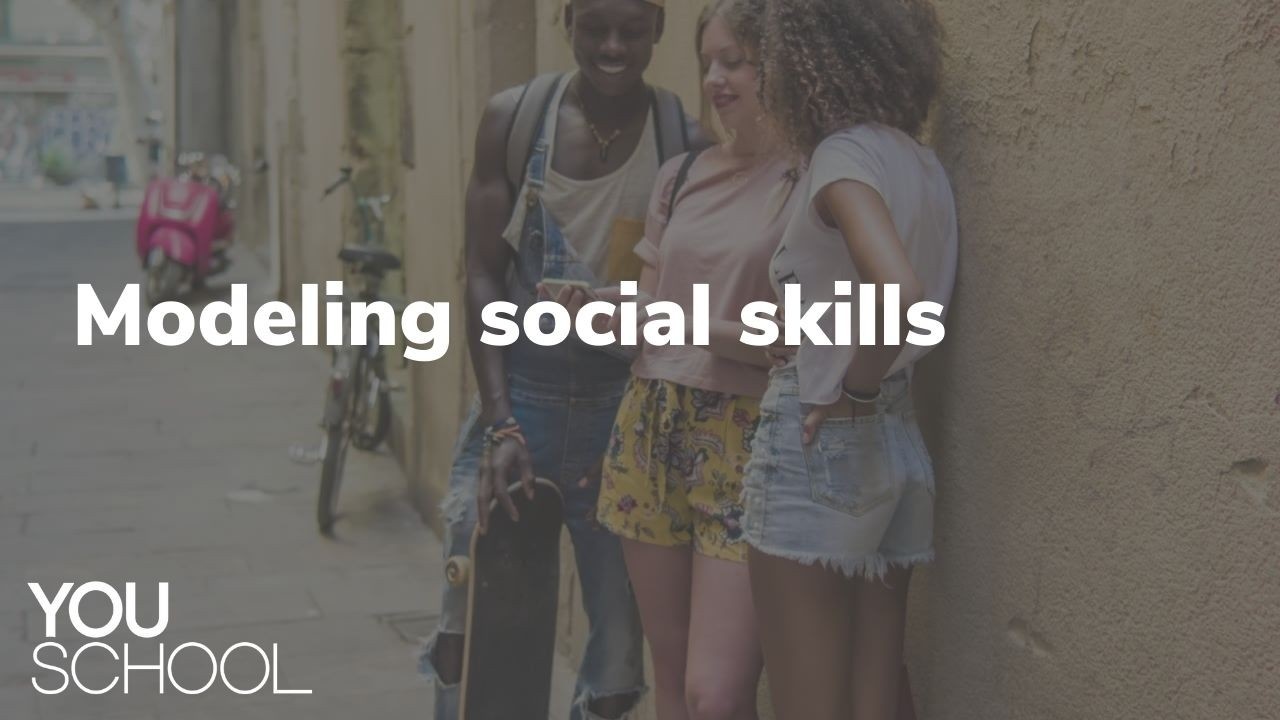Can you teach social skills?

Recently, I was the driver of a car full of teenagers on their way to a night at a local trampoline park. First off, just curious—do you loath the smell of feet as much as I do?
While on the way there and the drive home, I noticed a couple of things. They are full of energy, laughter, and life. And, they suck at conversations.
Sorry to be rude, but I cringed the entire time. One girl talked nonstop. No exaggeration. Non...stop. Another girl didn't say more than a word or two. The rest of them took turns trying to jump into the conversation, not in ways you might think like asking questions or acknowledging what the chatterbox was saying. No, they took turns sharing completely irrelevant data points about their lives. The name of their hamster that died six years ago. Something a kid said in Language Arts class. A new band they found out about. At least 90% of the time after they shared their random thought, nobody would acknowledge what they said. They changed subjects.
Now, to be fair, this is a great group of girls who are very committed to each other. They are sweet friends who are figuring out the woes of Middle School together. It's about as good of a situation as we could hope for as parents. But, they need help! They need social skills, and quickly.
FRIENDS ARE WHERE IT'S AT
For a teenager, friends are everything. They seek acceptance like it's a life-sustaining force, which it is to them. Rejection and isolation are not only the worst feelings but also the horrible ingredients for everything bad imaginable: poor academic performance, substance use, anxiety, depression, and self-harm. They need friends.
But, proximity and time don't necessarily translate into the qualities of friendship they need. Since social skills aren't taught explicitly at school and are often overlooked in youth sports or other activities, we (parents and educators) need to be extra deliberate to help them bolster them. What does that look like?
- Model good social skills: when your kids are around you, whether you're talking to a neighbor, a waiter, or a friend on the phone, be deliberate to model the type of social skills you hope they learn. Ask good questions, make proper eye contact and non-verbal cues, and speak clearly and kindly.
- Correct poor social skills: don't ever correct them in public, but if you notice they failed to do any of the above interactions, point it out to them. But, do it kindly and without shame. It's tempting to project onto them our own embarrassment or shame, but that will only shut them down further. Rather, recognize they're in a learning mode, likely feel anxious in social settings, and be a mirror to them about something they missed.
- Set clear expectations for good social skills: too often parents or educators snap at kids. We say things like, "Don't you know how to say 'please'?" Rather, what would be more helpful is to anticipate the social interaction in advance and script it for them. Tell them how it's important to put their phone in their pocket when you have guests over. Let them know how kind and generous it is to ask questions and show genuine interest in someone. Share your expectations for them in advance, so they know how to act beforehand.
Social skills are a key part of the emotional intelligence everyone needs in order to go through life well. Can you imagine someone living life well without them?
Get the Critical Foundations Book!
A meaningful life doesn't happen by chance- it's something you plan for.
Sign up for our Critical Foundations Podcast & Curriculum.
Get Access to the Critical Foundations Podcast & Curriculum
